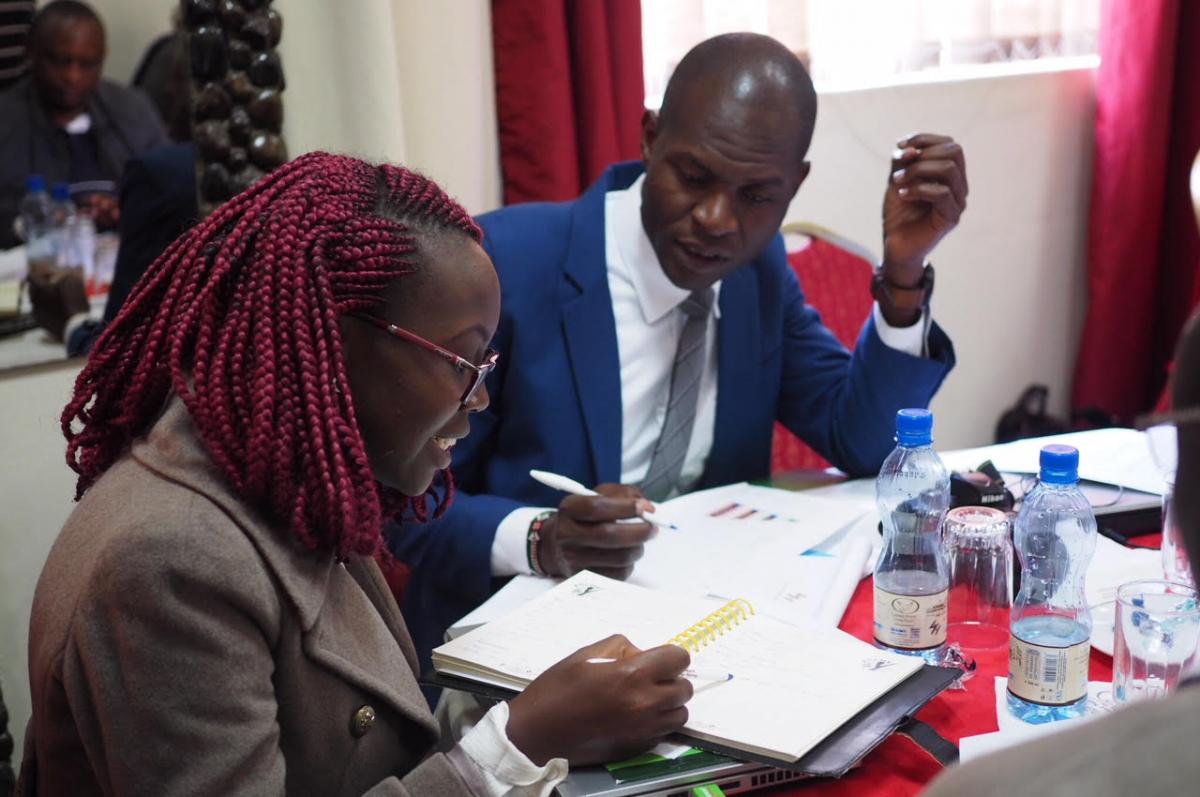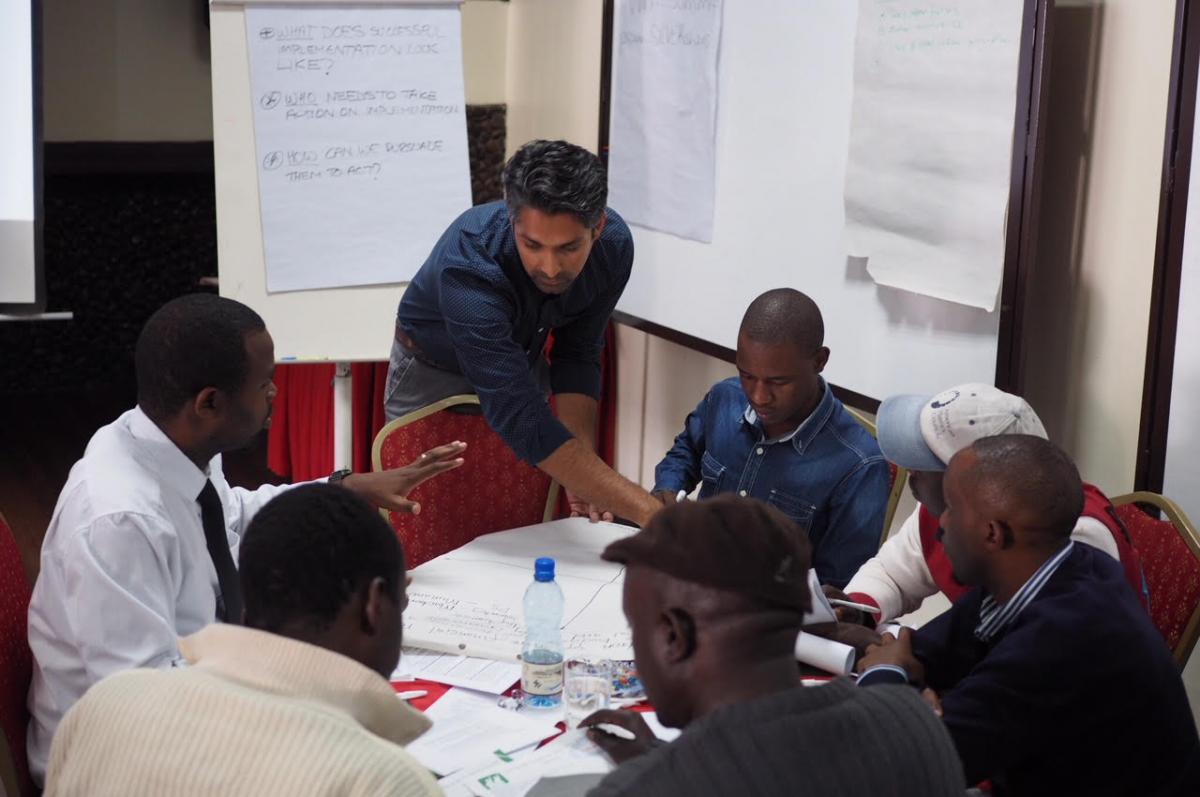December 22, 2017
By Allison Corkery
While UN human rights bodies are issuing stronger recommendations on economic, social and cultural rights (ESCR), implementation on the national level remains spotty at best. Sometimes lack of implementation is due to a government’s blatant disregard for human rights but frequently it can be attributed to practical challenges such as inadequate tracking mechanisms, an overly broad scope of recommendations, or to government inertia and competing priorities. We’ve been working with local partners around the world to respond to these challenges and push for stronger national implementation.
In early November, my colleague Mihir Mankad and I held a joint training and strategy session in Nairobi with Kenyan Civil Society Organizations (CSOs) under the leadership of Hakijami and KEWASNET on implementation of the recommendations issued by the Committee on Economic, Social and Cultural Rights (CESCR) after Kenya’s periodic review in 2016. The recommendations, in large part, reflected those suggested by the parallel report submitted to CESCR by Hakijamii and other Kenyan civil society organizations.

Although the government has implemented some of the recommendations, more deliberate efforts by civil society are needed to ensure the recommendations are applied in a systematic and comprehensive way, notes Collins Liko from Hakijamii.
“Our hope in partnering with CESR for this workshop was to revive the civil society coalition, which had lost some momentum after the review; to set a joint path forward for advocacy on implementation; and to share some tools that might help in monitoring progress,” says Liko.
The two days of the workshop were comprised of facilitated advocacy planning sessions, with a strong focus on how indicators and benchmarks can be used to increase accountability in implementation. The workshop was unique in bringing together diverse actors – community groups, civil society organizations, international NGOs, government, national human rights institutions (NHRI), and the UN – who all came with strong expertise in their various sectors.
Implementing recommendations like the ones issued by CESCR can be difficult because precisely what changes are needed is often unclear. Even with clarity, the changes required are frequently broad and multifaceted.
We addressed the challenge by asking participants to consider the recommendations they had prioritized through the lens of OPERA – CESR’s model analytical framework that can be used as tool to design metrics for monitoring the fulfillment of ESCR. Using OPERA (Outcomes, Policy Efforts, Resources and Assessment) to break down recommendations into concrete and actionable policy proposals helped participants consider what successful implementation would look like in a multidimensional way.
Having arrived at a more specific set of actions, the second challenge was to assess whether or not these actions had been successfully undertaken. In some situations, such as adopting a piece of legislation, measuring implementation is straightforward. For others, such as taking actions that “improve living conditions in informal settlements,” assessing achievement requires something more sophisticated.

Human rights indicators and benchmarks, tools that can be used to measure progress in the realization of ESCR and to demand accountability for lack of progress, are often perceived to be too technical or complicated for civil society organizations to use effectively. To demystify these tools, we led participants through sessions that defined and identified good human rights indicators and then encouraged them to debate what specific benchmarks might measure human rights implementation for each of the actions they had identified.
Our final challenge was to explore the best means for tackling government inertia. Obviously, identifying key actors who can commit to necessary actions and finding the best ways to leverage their participation is crucial. So, as the final step, we developed a preliminary strategy for government engagement. In particular, we explored ways that these strategies for implementation could be integrated into formal policymaking processes.
Participants emphasized that CESCR recommendations were just one set of recommendations seeking to influence government action; these need to be harmonized with recommendations from other treaty bodies and the Universal Periodic Review, as well as government commitments such as the Sustainable Development Goals (SDGs). Avoiding duplication allows human rights concerns to be more easily integrated into the broader policymaking process.
Each of these steps – specifying actions, identifying indicators and benchmarks, and developing an advocacy plan – sought to tackle fundamental barriers to implementation. Using OPERA to facilitate planning on advocacy for implementation reflects a trend towards a more directed application of OPERA. It has been interesting to see the demand for this kind of support and we’re excited to see how OPERA evolves as we respond to it.
Related:
- Opera in Practice: Strengthening Implementation of Strategic Litigation in South Africa
- The OPERA Framework
- CESR Webpage: Human Rights Monitoring
- Country page: Kenya